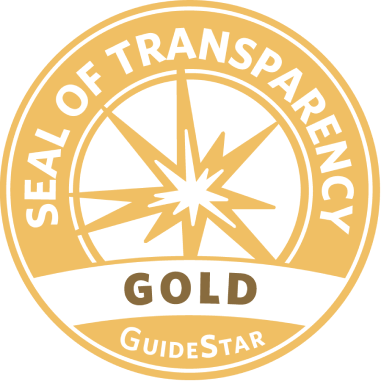In an increasingly interconnected world, language plays a pivotal role in bridging cultural divides, fostering understanding, and creating opportunities. English, as the lingua franca of globalization, has emerged as a powerful tool for communication across borders. For many marginalized individuals, particularly young women from underserved communities, learning English is not just about acquiring a skill—it’s about transitioning from isolation to connection.
At Omid, we have seen firsthand how English can transform lives. It provides a sense of belonging, access to education, and a pathway to economic and social empowerment. This article explores the profound impact of English in a globalized world and how it fosters connection for those who need it most.
The Role of English in a Globalized World
Globalization has reshaped how we communicate, learn, and work. English is often the medium through which these exchanges occur. It is the official or dominant language in over 60 countries and is widely used in international business, diplomacy, and academia. For individuals in non-English-speaking communities, learning English has become synonymous with accessing global opportunities.
However, this access is far from universal. For many young women in marginalized communities, systemic barriers such as poverty, gender discrimination, and limited educational resources make learning English a distant dream. At Omid Foundation, we aim to bridge this gap by providing accessible, high-quality English education.
From Isolation to Opportunity
For many of the young women we serve, life before learning English can feel isolating. They may be confined to their immediate communities, unable to communicate with the wider world or access information, education, and opportunities available online. Learning English changes this. It opens doors to new experiences, connects them with a global audience, and helps them break free from isolation.
Consider the case of Leila, a participant in Omid Foundation’s English program. Before joining the program, Leila struggled to communicate outside her small village. She had limited access to educational resources and felt disconnected from the world. After completing her English classes, Leila gained the confidence to enroll in an online university course, connect with peers from different countries, and even start her own blog to share her experiences.
Building Bridges Through Language
English serves as a bridge between diverse cultures, allowing individuals to connect, share ideas, and collaborate on a global scale. For marginalized women, this connection is invaluable. It provides a platform to share their stories, advocate for their communities, and build relationships with people from different backgrounds.
At Omid, we integrate cross-cultural learning into our English programs. Through online exchanges, group discussions, and mentorship opportunities, participants are exposed to different perspectives and learn to appreciate diversity. These experiences not only enhance their language skills but also foster empathy, understanding, and a sense of global citizenship.
Empowerment Through Communication
Language is power. It enables individuals to express themselves, articulate their needs, and advocate for change. For young women in underserved communities, learning English is an act of empowerment. It gives them the tools to navigate a globalized world with confidence and independence.
Our programs focus on more than just language proficiency. We emphasize practical communication skills that participants can use in real-life situations. Whether it’s writing a resume, conducting a job interview, or participating in an international conference, our graduates are equipped to succeed in any setting.
Unlocking Economic Potential
Proficiency in English is a valuable asset in the global job market. It is often a prerequisite for high-paying jobs in industries such as technology, tourism, and international business. For many young women, learning English is the first step toward financial independence and stability.
Take the story of Ayesha, another graduate of Omid Foundation’s English program. Ayesha grew up in a rural area with limited opportunities for education and employment. After completing our program, she secured a job at a multinational company, earning enough to support her family and invest in her siblings’ education. English was the key that unlocked these opportunities for Ayesha and her family.
Access to Education and Knowledge
English is the language of many academic resources, research papers, and online courses. For individuals in underserved communities, learning English provides access to a wealth of knowledge that was previously inaccessible. It allows them to pursue higher education, gain new skills, and stay informed about global developments.
Omid’s programs emphasize lifelong learning. We encourage participants to use their English skills to explore new fields, engage with global issues, and contribute to their communities. This access to education and knowledge is transformative, enabling young women to achieve their full potential.
Overcoming Challenges
While the benefits of learning English are undeniable, the journey is not without its challenges. Many participants face obstacles such as limited access to technology, societal pressures, and self-doubt. At Omid, we are committed to supporting them every step of the way.
Our programs provide not only language instruction but also mentorship, emotional support, and resources to overcome these barriers. We ensure that participants have access to the tools they need, from internet-enabled devices to personalized coaching. This holistic approach helps them succeed academically and personally.
Stories of Transformation
The true impact of English education is best illustrated through the stories of those who have experienced it. One such story is that of Sara, a 19-year-old who joined our program with little confidence in her abilities. Through her hard work and dedication, she mastered English, gained admission to a prestigious university, and is now pursuing her dream of becoming a human rights lawyer.
Another inspiring example is Maryam, who used her English skills to start an online business selling handmade crafts. Her business has not only provided financial security for her family but has also connected her with customers worldwide.
These stories highlight the transformative power of language education and the resilience of the human spirit.
A Call to Action
At Omid Foundation, we believe that every young woman deserves the opportunity to connect with the world and realize her potential. Learning English is a crucial step in this journey. By supporting our programs, you can help us empower more young women to transition from isolation to connection.
Your contributions enable us to provide resources, develop innovative teaching methods, and reach more communities in need. Together, we can create a world where every young woman has the tools to thrive in a globalized society.
Conclusion
In a world that is more interconnected than ever, the ability to communicate in English is a lifeline for marginalized individuals. It transforms isolation into connection, barriers into opportunities, and dreams into reality. At Omid Foundation, we are proud to play a role in this transformation, empowering young women to find their voice and take their place on the global stage.
As we continue our work, we remain committed to the belief that language is not just a skill—it’s a bridge to a brighter future. Join us in building that bridge and transforming lives through the power of English education.

